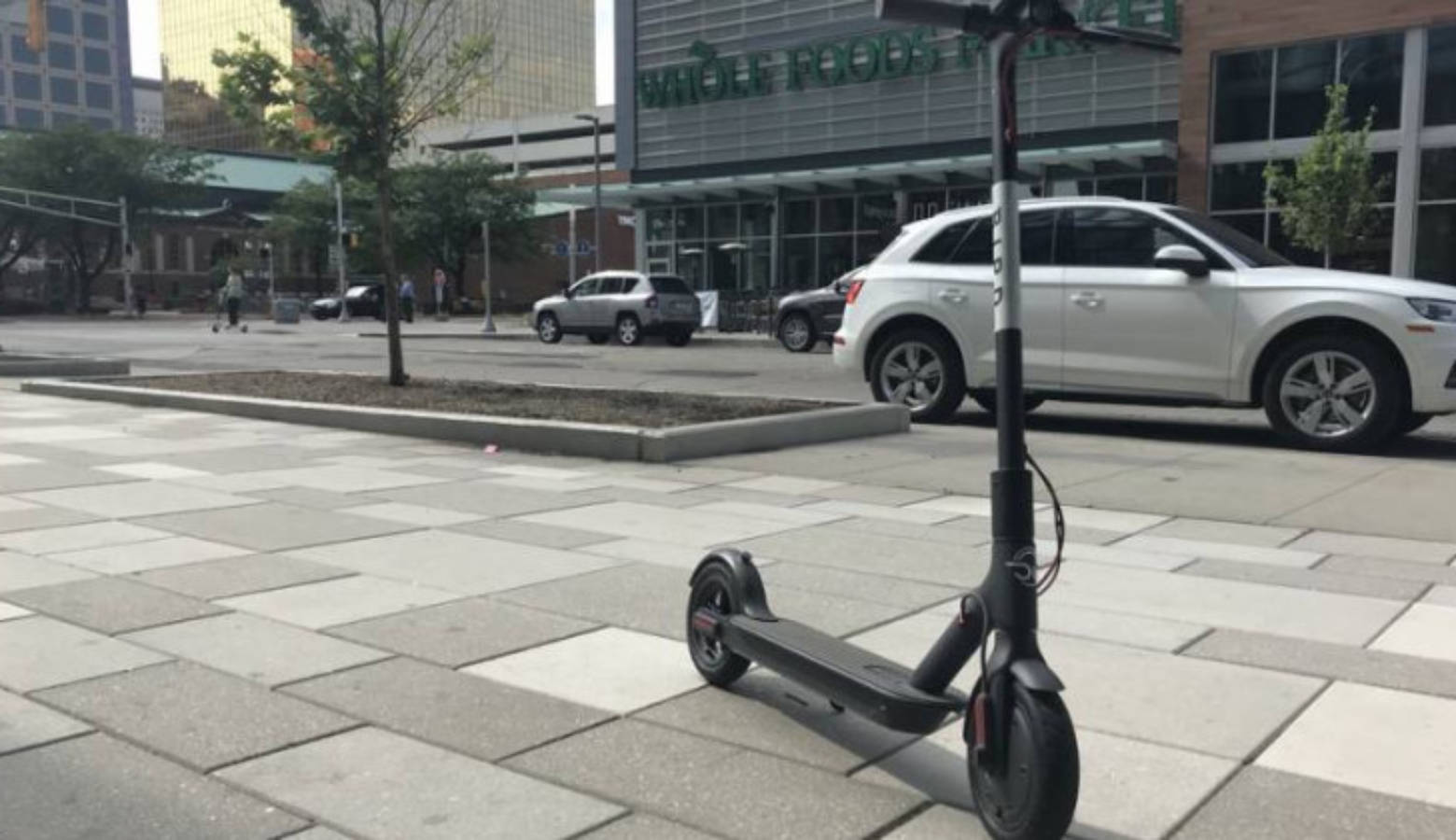Indy Council Passes Regulations For Electric Scooter Share Companies

Vehicle share companies, notably electric scooter companies Bird and Lime, will be able to do business in Indianapolis after regulations were approved by the City-County Council Monday night.
The proposal is largely unchanged from the one committee members approved in June. It requires vehicle share companies to purchase a license that costs $15,000 a year, pay $1 per day/per device, and to agree on a number of stipulations.
Those stipulations came under intense scrutiny before the council’s final vote.
Shared electric scooter companies let users find a scooter on a smartphone app, ride it, then drop it off for a small fee. Republican Jeff Miller says he welcomes innovative technology companies to the city, but says this unique business model enables users to act irresponsibly.
“The scooter companies say ‘Don’t use them on the sidewalks,’ and that’s the number one place they’re being used, and that is dangerous. You are the reason we have legislation,” Miller says.
In the ordinance devices are required to be marked with a unique serial number, equipped with a bell or horn, and the corresponding app must tell users to follow traffic laws and to wear a helmet.
There are also rules about parking. Since the scooter model from Bird and Lime is dock-free, users are free to leave scooters wherever they want when they’re finished. One reason the service has been controversial in other cities is because it led to scooters being abandoned in the middle of busy pathways.
The ordinance states that devices must be parked with at least 6 feet of unobstructed passage on a public right-of-way. It also forbids parking that blocks ADA accessible ramps and entrances.
But much of the council’s debate, which lasted over an hour, focused on who would enforce these rules, and the answer from city officials was complicated – it comes down to exactly what rule is broken.
When councilors asked a representative from Lime about their role in enforcement, the company said they employ 15 staff members in the city for customer assistance. But the company also says it is not liable for much of what their users choose to do after they agree to their terms of service.
Some councilors attempted to send the proposal back to committee, but the vote failed. Democrat Blake Johnson tried to reassure them, saying they’ll keep working out the details.
“We are voting to create the mechanism and dialogue to actually do anything related to this, rather than letting it operate in freefall,” Johnson says.
Indianapolis asked Bird to stop operating in the city just a few days after it started in mid-June, citing legal concerns around the new business model, and because the City-County Council was working through a proposal that would ban the service.
Bird refused, prompting a second scooter company, Lime, to jump in.
That prompted the city to ask the companies to stop operating, a request both ignored until recently.
The ordinance passed with a vote of 19 to 6. No matter how regulations change, the council’s approval means Bird and Lime are expected to bring their vehicles back to Indianapolis soon.
